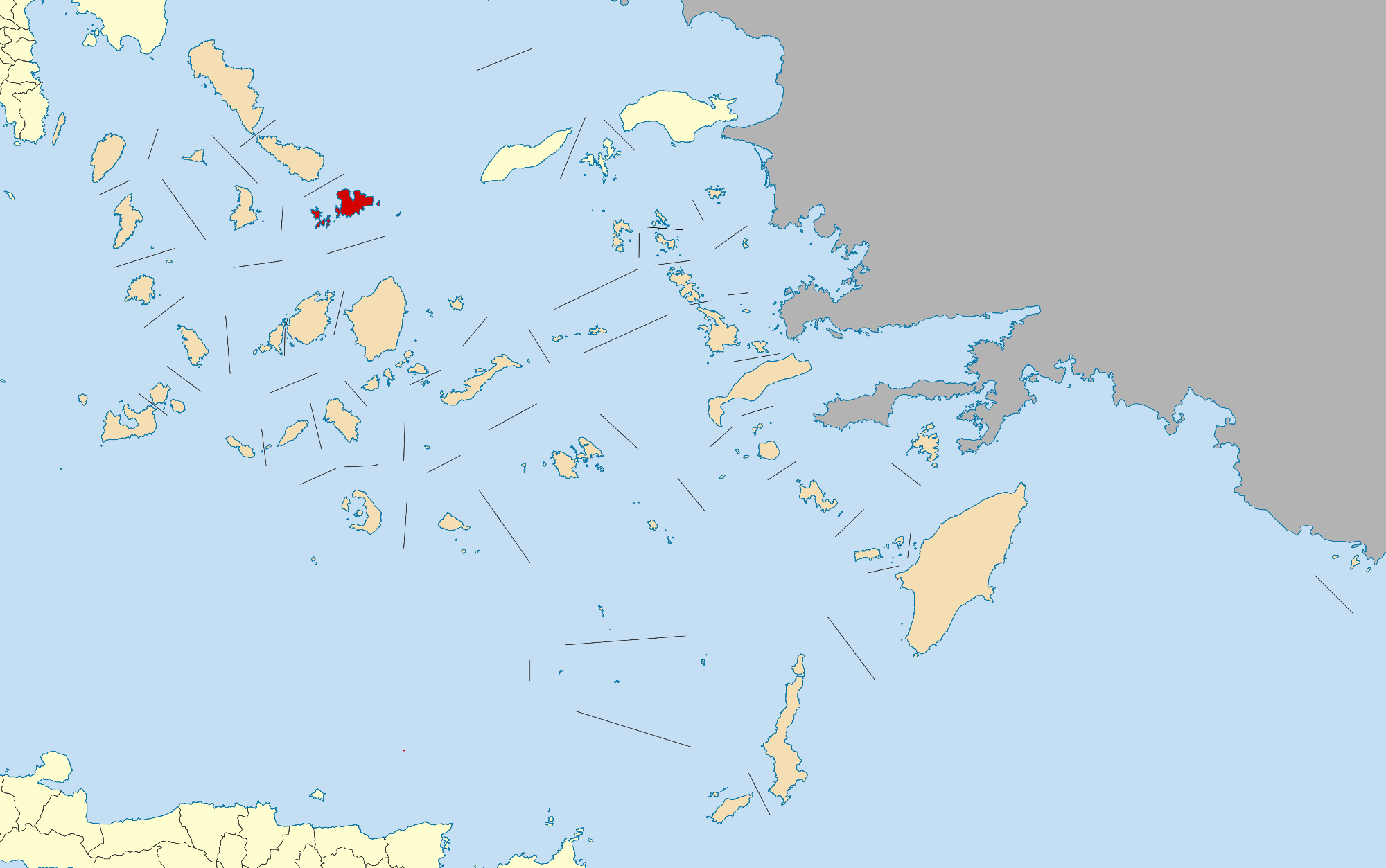 For my week-by-week desk calendar through 2014, I will rely on an unflashy but serviceable volume from American Express. As with last year's Amex calendar, there are factual tidbits on each page about various destinations where I can presumably enjoy a debt-financed vacation with my Amex card. The earliest pages tell me various facts for example with reference to Mykonos, in Greece, the red dot in the map you see here. I learn in this way that Mykonos is home to the a neighborhood known as Little Venice, "whose waterfront houses with their colorful balconies recall the quarter's Italian namesake."
For my week-by-week desk calendar through 2014, I will rely on an unflashy but serviceable volume from American Express. As with last year's Amex calendar, there are factual tidbits on each page about various destinations where I can presumably enjoy a debt-financed vacation with my Amex card. The earliest pages tell me various facts for example with reference to Mykonos, in Greece, the red dot in the map you see here. I learn in this way that Mykonos is home to the a neighborhood known as Little Venice, "whose waterfront houses with their colorful balconies recall the quarter's Italian namesake."While Mykonos gets January, the site of this year's winter Olympics, Sochi in Russia, gets February. Events will be clustered in two distinct parts of Sochi, "a coastal cluster for indoor ice events and a mountain cluster for skiing ... in Krasnaya Polyana."
Separately, my month-by-month wall calendar for the new year is entitled "Railroads: Illustrations from Railroad Magazine." Friends will recognize the family connection that made it inevitable I would buy this as soon as I saw it. The February page includes a quote from John White Jr., "One of the most neglected topics of locomotive history is the tender." The tender is the car that contains the fuel [usually coal I the era of steam] and the water. There were innumerable variations of design to it.
Finally, for the day-to-day or "box" calendar on the top of my dresser, I am done with Latin phrases and maxims for now, and this year will be looking at one Dilbert cartoon strip each morning.
Comments
Post a Comment